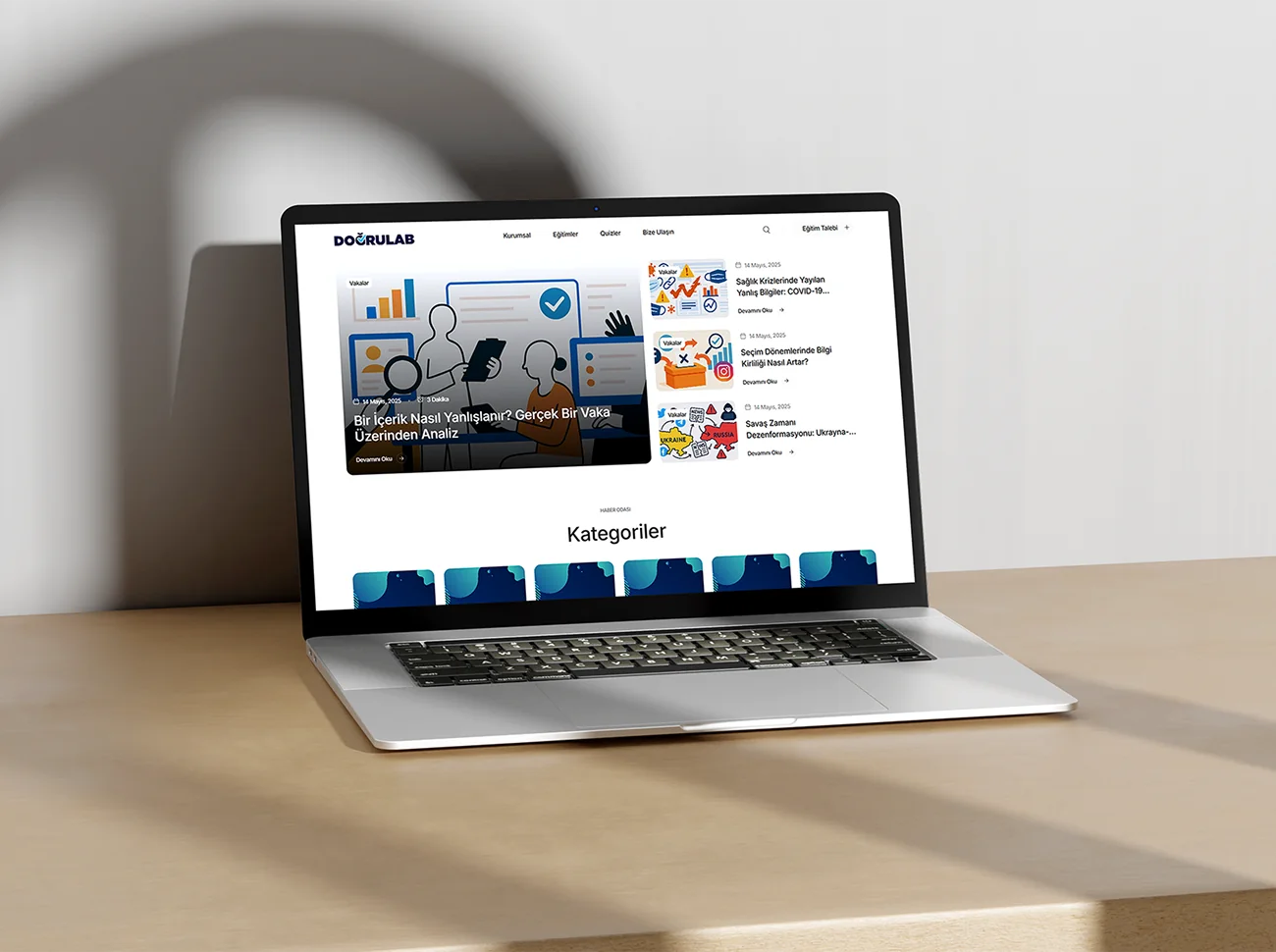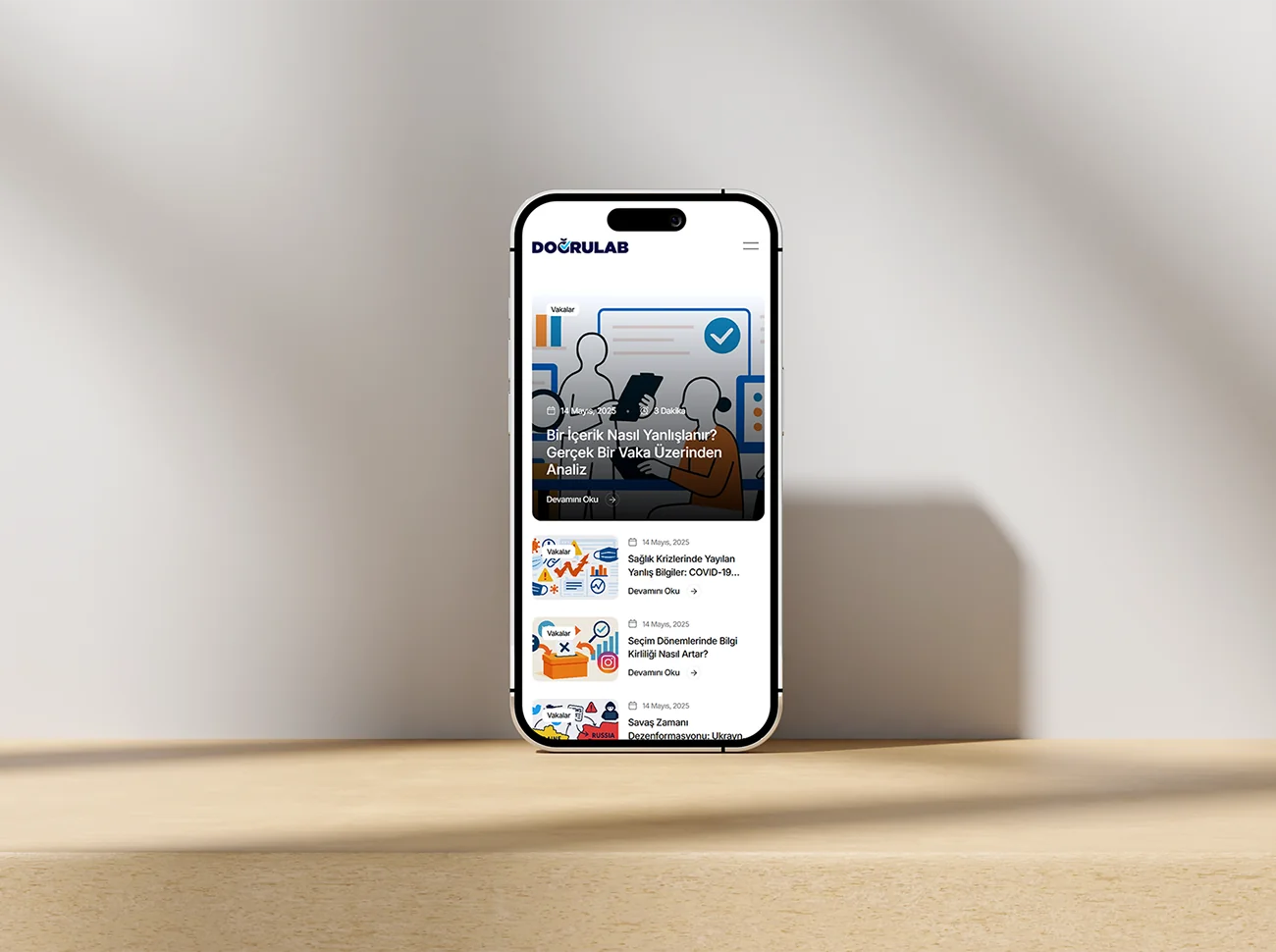Tasarlab brought our vision for Doğrulab.com to life with a functional, user-friendly, and visually appealing platform. Their quick understanding of our needs and solution-oriented approach made the entire process smooth and efficient.

Doğrulab
Doğrulab was developed as the educational sub-initiative of Doğrula.org, the flagship fact-checking project of the Digital Society Research Association. Supported by the Swedish Consulate in Turkey, the platform provides a comprehensive learning environment designed to equip young people, educators, and adults with essential digital media literacy skills. Topics such as combating misinformation, identifying AI-generated content, fact-checking news, and data analysis are delivered through interactive and hands-on learning methods. All educational materials are developed with input from experts across various fields, including journalists and academics, and are based on a digital literacy framework that emphasizes critical thinking and information literacy.
UI/UX Design
Front-End
WordPress Integration

To effectively deliver content focused on fact-checking and digital media literacy to a broad audience, a strong and sustainable digital infrastructure was needed. As an education-driven initiative targeting both young people and adults, the Doğrulab project aimed to provide a user-friendly, accessible, and up-to-date digital experience. This vision highlighted the necessity for a flexible and scalable system that would allow the project team to easily manage content. To meet all these needs, a new website was required, one that simplifies access to information, meets user expectations, and enables effective content delivery.
Designed as an education-focused platform, Doğrulab aims to enhance digital media literacy by offering an interactive learning experience that encourages active user participation. As part of the project, a clean, functional, and accessible user interface was developed with a strong focus on user experience. The goal was to ensure that users could easily access educational content and engage more effectively with the platform. The front-end development process was completed using a responsive structure, ensuring optimal performance across various devices and screen sizes. To enable practical and sustainable content management, the platform was built on a WordPress infrastructure, allowing the project team to easily update and maintain educational materials.
